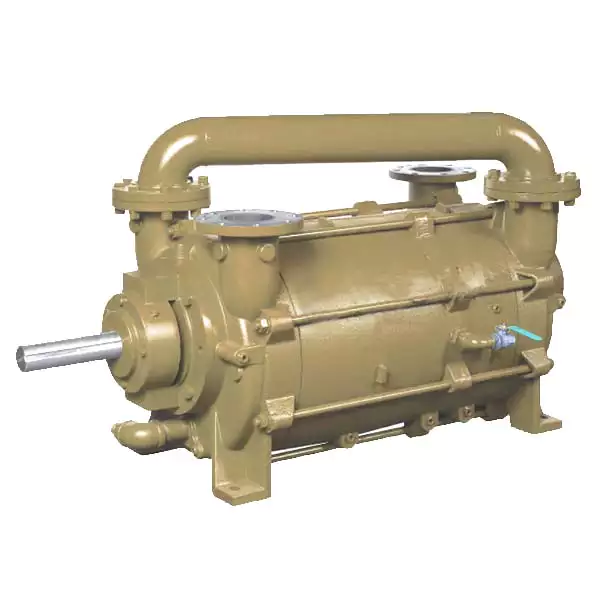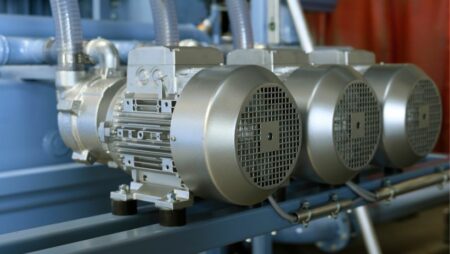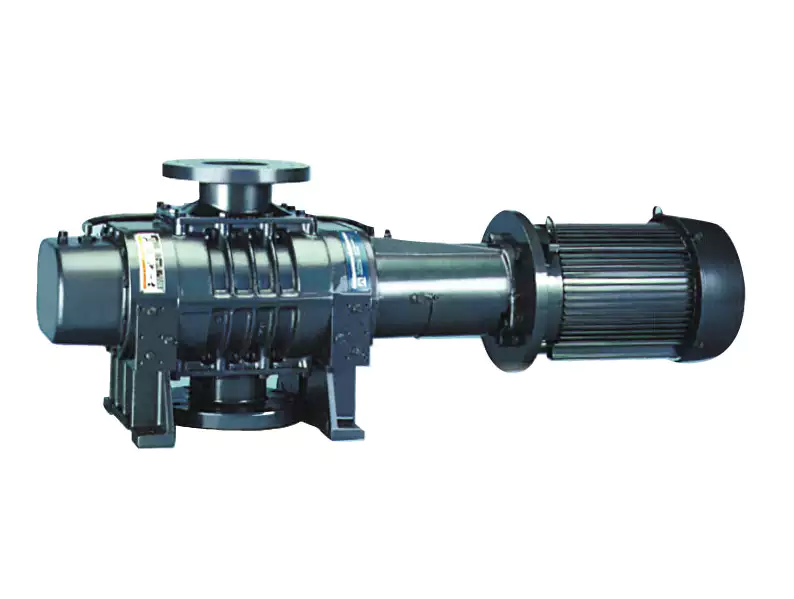Product Description
Electric Suction Air Oilless Diaphragm Vacuum Pump for Vacuum Filtration and Distillation
Introduction:
Anti-corrosion diaphragm vacuum pump it is used to provide vacuum conditions for evaporation, distillation, crystallization, drying, sublimation, filtration decompression, degassing, as well as solvent recovery, a variety of highly toxic, flammable and explosive, strong acid, strong alkali extraction, etc. Its advanced design, high efficiency, long service life, is a new generation of high-tech products in one. In addition to the applicable occasions of circulating water vacuum pump and rotary vane vacuum pump, it is also used in the fields of medical and pharmaceutical product analysis, fine chemical industry, biochemical and pharmaceutical, food inspection, criminal investigation technology, etc. It is a product for precision chromatography instruments and 1 of the laboratory equipment.
Applications:
1. Vacuum filtration
2. Vacuum distillation
3. Vacuum adsorption
4. Solvent filtration
5. CHINAMFG phase extraction
6. Degasification
7. For compression and air conversion gas
Characteristics:
1. No need for any working medium (no oil), no pollution, while the machine has filtering material built into the gas exchange bin, thus ensuring the purity of the air.
2. New technology and new materials are used in the production process. It is easy to move and works smoothly, thus ensuring ideal vacuum and high air flow rate.
3. Motor reasonable rotation design, equipped with overheating power-off protector, automatic power-off after the temperature of the pump body reaches 130 ºC, long-term running conditions to protect the motor from damage.
4. Adopt frictionless membrane movement, no heat generation, no friction loss. The diaphragm is made of imported rubber, which is corrosion resistant and has a long service life.
5. The machine is designed with automatic cooling and exhaust system, which can ensure 24 hours continuous operation.
6. With adjustable pressure design, it can meet the vacuum degree and gas flow rate in a certain range.
7. The bearings are imported classic bearings with smooth running, low noise and high working efficiency.
8. The parts of the anti-corrosion pump that are in contact with gas are treated with PTFE surface, which has complete resistance to chemical corrosion.
9. Small size, light weight, easy to move, save lab space, easy to repair and maintain.
Anti-corrosion PTFE Features:
The anti-corrosion pump is characterized by its PTFE treatment and PTFE material in contact with gas, which is resistant to strong acid and alkali and suitable for corrosive chemical, pharmaceutical, petrochemical gases, etc. This pump is suitable for vacuum filtration, reduced pressure distillation, rotary evaporation, vacuum concentration, centrifugal acceleration, CHINAMFG phase extraction, etc. It is a cost-effective product with reliable quality and unique structure design, which is suitable for most experimental needs.
1. Corrosion resistant, able to withstand almost all strong acids (including CHINAMFG regia), strong bases, strong oxidizers, reducing agents and various organic solvents.
2. High and low temperature resistance, little change in temperature, wide temperature range, PTFE material can withstand temperatures of -190 ~ 260 ºC.
3. Non-stick surface, high insulation, high lubrication, most of the impurity particles can not adhere to the surface.
Product Parameters:
| Model | GM-0.20 | GM-0.33A | GM-0.5A | GM-0.5B | GM-1.0A |
| Pumping Rate | 12L/Min | 20L/Min | 30L/Min | 60L/Min | |
| Pump Head | Single | Double | |||
| Noise | <60db | ||||
| Ultimate Pressure | ≥0.075Mpa | ≥0.08Mpa | ≥0.095Mpa | ≥0.08Mpa | |
| Vacuum Degree | 250mbar | 200mbar | 50mbar | 200mbar | |
| Positive Pressure | ≥30Psi | _ | ≥30Psi | _ | ≥30Psi |
| Air Inlet | Φ6mm | ||||
| Air Outlet | Φ6mm | Built-in silencing cotton | Φ6mm | Silencer | Φ6mm |
| Power | 75W | 160W | |||
| Power Supply | Power Supply | ||||
| Overall Size (mm) | 195x98x156 | 215x120x235 | 210x160x235 | 300x120x235 |
300x160x235 |
| Weight | 4kg | 7.5kg | 8kg | 10kg | |
Our Service
/* January 22, 2571 19:08:37 */!function(){function s(e,r){var a,o={};try{e&&e.split(",").forEach(function(e,t){e&&(a=e.match(/(.*?):(.*)$/))&&1
| After-sales Service: | 24 Hours Online |
|---|---|
| Warranty: | One Year |
| Oil or Not: | Oil Free |
| Structure: | Diaphragm Vacuum Pump |
| Exhauster Method: | Positive Displacement Pump |
| Vacuum Degree: | High Vacuum |
| Customization: |
Available
|
|
|---|

How Do You Maintain and Troubleshoot Vacuum Pumps?
Maintaining and troubleshooting vacuum pumps is essential to ensure their optimal performance and longevity. Here's a detailed explanation:
Maintenance of Vacuum Pumps:
1. Regular Inspection: Perform regular visual inspections of the pump to check for any signs of damage, leaks, or abnormal wear. Inspect the motor, belts, couplings, and other components for proper alignment and condition.
2. Lubrication: Follow the manufacturer's guidelines for lubrication. Some vacuum pumps require regular oil changes or lubrication of moving parts. Ensure that the correct type and amount of lubricant are used.
3. Oil Level Check: Monitor the oil level in oil-sealed pumps and maintain it within the recommended range. Add or replace oil as necessary, following the manufacturer's instructions.
4. Filter Maintenance: Clean or replace filters regularly to prevent clogging and ensure proper airflow. Clogged filters can impair pump performance and increase energy consumption.
5. Cooling System: If the vacuum pump has a cooling system, inspect it regularly for cleanliness and proper functioning. Clean or replace cooling components as needed to prevent overheating.
6. Seals and Gaskets: Check the seals and gaskets for signs of wear or leakage. Replace any damaged or worn seals promptly to maintain airtightness.
7. Valve Maintenance: If the vacuum pump includes valves, inspect and clean them regularly to ensure proper operation and prevent blockages.
8. Vibration and Noise: Monitor the pump for excessive vibration or unusual noise, which may indicate misalignment, worn bearings, or other mechanical issues. Address these issues promptly to prevent further damage.
Troubleshooting Vacuum Pump Problems:
1. Insufficient Vacuum Level: If the pump is not achieving the desired vacuum level, check for leaks in the system, improper sealing, or worn-out seals. Inspect valves, connections, and seals for leaks and repair or replace as needed.
2. Poor Performance: If the pump is not providing adequate performance, check for clogged filters, insufficient lubrication, or worn-out components. Clean or replace filters, ensure proper lubrication, and replace worn parts as necessary.
3. Overheating: If the pump is overheating, check the cooling system for blockages or insufficient airflow. Clean or replace cooling components and ensure proper ventilation around the pump.
4. Excessive Noise or Vibration: Excessive noise or vibration may indicate misalignment, worn bearings, or other mechanical issues. Inspect and repair or replace damaged or worn parts. Ensure proper alignment and balance of rotating components.
5. Motor Issues: If the pump motor fails to start or operates erratically, check the power supply, electrical connections, and motor components. Test the motor using appropriate electrical testing equipment and consult an electrician or motor specialist if necessary.
6. Excessive Oil Consumption: If the pump is consuming oil at a high rate, check for leaks or other issues that may be causing oil loss. Inspect seals, gaskets, and connections for leaks and repair as needed.
7. Abnormal Odors: Unusual odors, such as a burning smell, may indicate overheating or other mechanical problems. Address the issue promptly and consult a technician if necessary.
8. Manufacturer Guidelines: Always refer to the manufacturer's guidelines and recommendations for maintenance and troubleshooting specific to your vacuum pump model. Follow the prescribed maintenance schedule and seek professional assistance when needed.
By following proper maintenance procedures and promptly addressing any troubleshooting issues, you can ensure the reliable operation and longevity of your vacuum pump.

Can Vacuum Pumps Be Used in the Production of Solar Panels?
Yes, vacuum pumps are extensively used in the production of solar panels. Here's a detailed explanation:
Solar panels, also known as photovoltaic (PV) panels, are devices that convert sunlight into electricity. The manufacturing process of solar panels involves several critical steps, many of which require the use of vacuum pumps. Vacuum technology plays a crucial role in ensuring the efficiency, reliability, and quality of solar panel production. Here are some key areas where vacuum pumps are utilized:
1. Silicon Ingot Production: The first step in solar panel manufacturing is the production of silicon ingots. These ingots are cylindrical blocks of pure crystalline silicon that serve as the raw material for solar cells. Vacuum pumps are used in the Czochralski process, which involves melting polycrystalline silicon in a quartz crucible and then slowly pulling a single crystal ingot from the molten silicon. Vacuum pumps create a controlled environment by removing impurities and preventing contamination during the crystal growth process.
2. Wafering: After the silicon ingots are produced, they undergo wafering, where the ingots are sliced into thin wafers. Vacuum pumps are used in wire saws to create a low-pressure environment that helps to cool and lubricate the cutting wire. The vacuum also assists in removing the silicon debris generated during the slicing process, ensuring clean and precise cuts.
3. Solar Cell Production: Vacuum pumps play a significant role in various stages of solar cell production. Solar cells are the individual units within a solar panel that convert sunlight into electricity. Vacuum pumps are used in the following processes:
- Diffusion: In the diffusion process, dopants such as phosphorus or boron are introduced into the silicon wafer to create the desired electrical properties. Vacuum pumps are utilized in the diffusion furnace to create a controlled atmosphere for the diffusion process and remove any impurities or gases that may affect the quality of the solar cell.
- Deposition: Thin films of materials such as anti-reflective coatings, passivation layers, and electrode materials are deposited onto the silicon wafer. Vacuum pumps are used in various deposition techniques like physical vapor deposition (PVD) or chemical vapor deposition (CVD) to create the necessary vacuum conditions for precise and uniform film deposition.
- Etching: Etching processes are employed to create the desired surface textures on the solar cell, which enhance light trapping and improve efficiency. Vacuum pumps are used in plasma etching or wet etching techniques to remove unwanted material or create specific surface structures on the solar cell.
4. Encapsulation: After the solar cells are produced, they are encapsulated to protect them from environmental factors such as moisture and mechanical stress. Vacuum pumps are used in the encapsulation process to create a vacuum environment, ensuring the removal of air and moisture from the encapsulation materials. This helps to achieve proper bonding and prevents the formation of bubbles or voids, which could degrade the performance and longevity of the solar panel.
5. Testing and Quality Control: Vacuum pumps are also utilized in testing and quality control processes during solar panel production. For example, vacuum systems can be used for leak testing to ensure the integrity of the encapsulation and to detect any potential defects or leaks in the panel assembly. Vacuum-based measurement techniques may also be employed for assessing the electrical characteristics and efficiency of the solar cells or panels.
In summary, vacuum pumps are integral to the production of solar panels. They are used in various stages of the manufacturing process, including silicon ingot production, wafering, solar cell production (diffusion, deposition, and etching), encapsulation, and testing. Vacuum technology enables precise control, contamination prevention, and efficient processing, contributing to the production of high-quality and reliable solar panels.
Can Vacuum Pumps Be Used in the Medical Field?
Yes, vacuum pumps have a wide range of applications in the medical field. Here's a detailed explanation:
Vacuum pumps play a crucial role in various medical applications, providing suction or creating controlled vacuum environments. Here are some key areas where vacuum pumps are used in the medical field:
1. Negative Pressure Wound Therapy (NPWT):
Vacuum pumps are extensively utilized in negative pressure wound therapy, a technique used to promote wound healing. In NPWT, a vacuum pump creates a controlled low-pressure environment within a wound dressing, facilitating the removal of excess fluid, promoting blood flow, and accelerating the healing process.
2. Surgical Suction:
Vacuum pumps are an integral part of surgical suction systems. They provide the necessary suction force to remove fluids, gases, or debris from the surgical site during procedures. Surgical suction helps maintain a clear field of view for surgeons, enhances tissue visualization, and contributes to a sterile operating environment.
3. Anesthesia:
In anesthesia machines, vacuum pumps are used to create suction for various purposes:
- Airway Suction: Vacuum pumps assist in airway suctioning to clear secretions or obstructions from the patient's airway during anesthesia or emergency situations.
- Evacuation of Gases: Vacuum pumps aid in removing exhaled gases from the patient's breathing circuit, ensuring the delivery of fresh gas mixtures and maintaining appropriate anesthesia levels.
4. Laboratory Equipment:
Vacuum pumps are essential components in various medical laboratory equipment:
- Vacuum Ovens: Vacuum pumps are used in vacuum drying ovens, which are utilized for controlled drying or heat treatment of sensitive materials, samples, or laboratory glassware.
- Centrifugal Concentrators: Vacuum pumps are employed in centrifugal concentrators to facilitate the concentration or dehydration of biological samples, such as DNA, proteins, or viruses.
- Freeze Dryers: Vacuum pumps play a vital role in freeze-drying processes, where samples are frozen and then subjected to vacuum conditions to remove water via sublimation, preserving the sample's structure and integrity.
5. Medical Suction Devices:
Vacuum pumps are utilized in standalone medical suction devices, commonly found in hospitals, clinics, and emergency settings. These devices create suction required for various medical procedures, including:
- Suctioning of Respiratory Secretions: Vacuum pumps assist in removing respiratory secretions or excess fluids from the airways of patients who have difficulty coughing or clearing their airways effectively.
- Thoracic Drainage: Vacuum pumps are used in chest drainage systems to evacuate air or fluid from the pleural cavity, helping in the treatment of conditions such as pneumothorax or pleural effusion.
- Obstetrics and Gynecology: Vacuum pumps are employed in devices used for vacuum-assisted deliveries, such as vacuum extractors, to aid in the safe delivery of babies during childbirth.
6. Blood Collection and Processing:
Vacuum pumps are utilized in blood collection systems and blood processing equipment:
- Blood Collection Tubes: Vacuum pumps are responsible for creating the vacuum inside blood collection tubes, facilitating the collection of blood samples for diagnostic testing.
- Blood Separation and Centrifugation: In blood processing equipment, vacuum pumps assist in the separation of blood components, such as red blood cells, plasma, and platelets, for various medical procedures and treatments.
7. Medical Imaging:
Vacuum pumps are used in certain medical imaging techniques:
- Electron Microscopy: Electron microscopes, including scanning electron microscopes and transmission electron microscopes, require a vacuum environment for high-resolution imaging. Vacuum pumps are employed to maintain the necessary vacuum conditions within the microscope chambers.
These are just a few examples of the wide-ranging applications of vacuum pumps in the medical field. Their ability to create suction and controlled vacuum environments makes them indispensable in medical procedures, wound healing, laboratory processes, anesthesia, and various other medical applications.


editor by CX 2024-03-12
